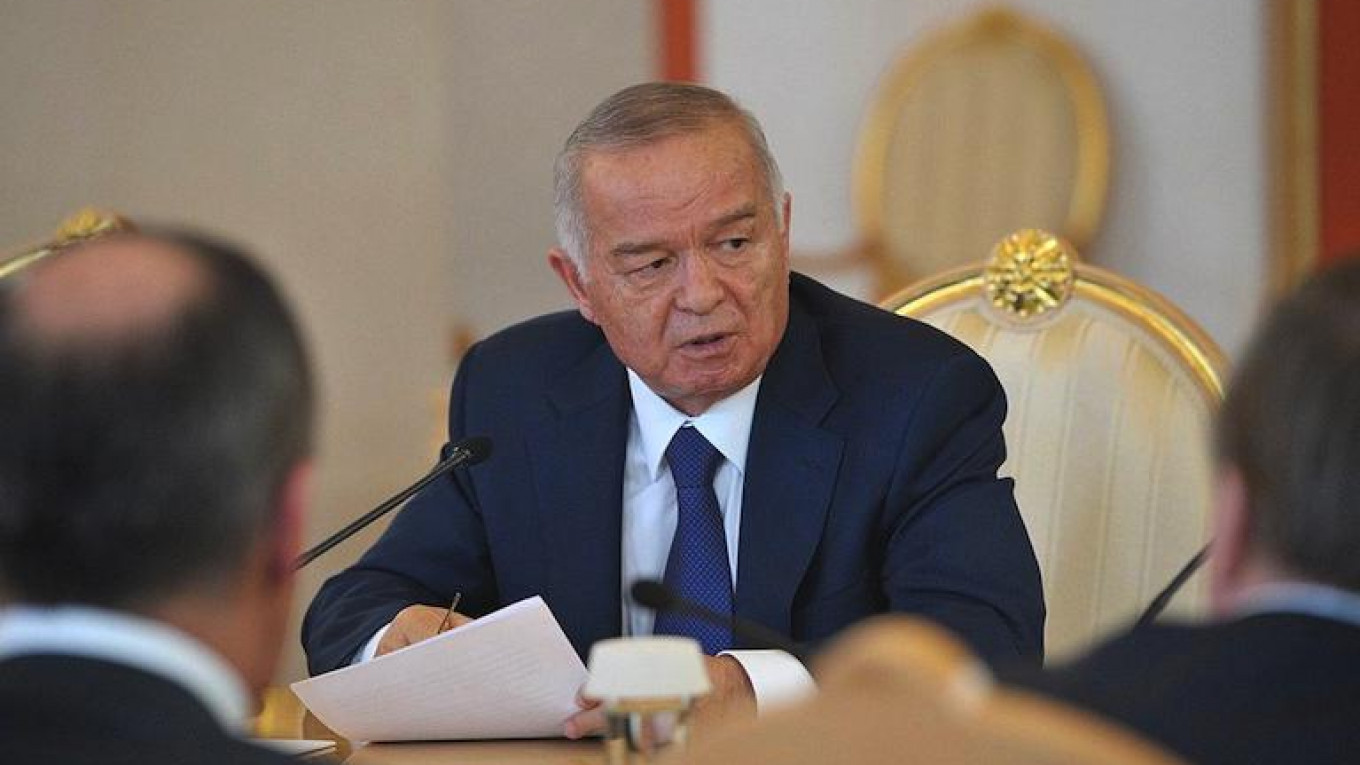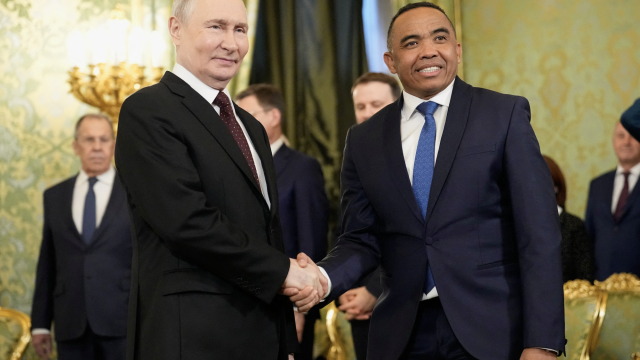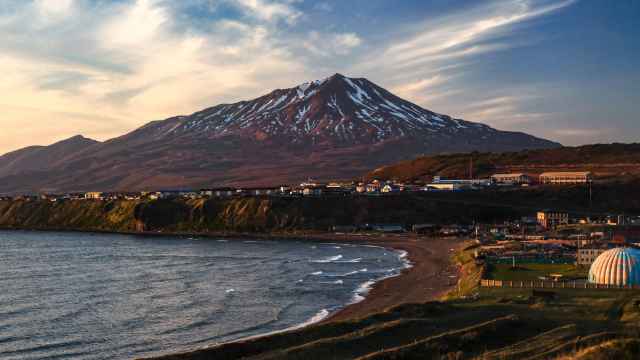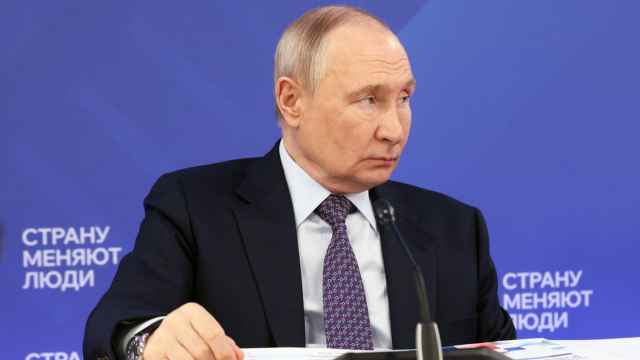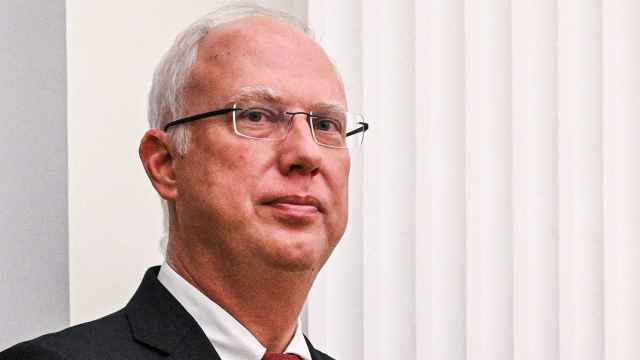Officials, experts and observers across the world have been
transfixed by the recent rumors, counter-rumors and half-truths swirling around
the ill health and possible death of Uzbek President Islam Karimov.
But the fate of the dictator is being particularly closely monitored by the Kremlin, which was the colonial master of Central Asia for most of the 20th century.
Since coming to power in 1989, Karimov has ruled Uzbekistan with an iron fist and helped ensure regional stability. He has also largely rebuffed Russia in its efforts to draw Uzbekistan into post-Soviet economic and security groupings dominated by Moscow.
A change of leadership in Tashkent could herald a shift in Uzbekistan’s foreign policy, and any upheavals during the battle to succeed Karimov would have consequences for the entire region. Many believe that Uzbek Prime Minister Shavkat Mirziyayev, backed by security services head Rustam Inoyatov, will succeed Karimov.
Stability First
The priority for Moscow amid a power transfer in Uzbekistan is to prevent a major confrontation or outbreak of violence that would endanger the regional status quo, according to experts and analysts contacted by The Moscow Times.
“Uzbekistan is the strongest [Central Asian] state, it has the strongest military and the strongest security services. It also has the largest population at around 30 million people. Any instability there would be a huge vacuum in the region,” says Paul Stronski, a Central Asia expert at the Carnegie Endowment for International Peace and a former adviser to the U.S. government. “Given the country’s difficult ties with its neighbors Kyrgyzstan and Tajikistan, I bet that’s Russia’s biggest concern.”
A weakened state could allow space for Islamic militant groups — a much disputed threat in Central Asia — to gain a foothold in the country, according to some experts.
“It’s a very repressive country and I don’t think we know how much discontent there is,” says Stronski.
There are also economic interests at play. The closed nature of Uzbek politics means that Tashkent’s foreign ties are limited, but Russia is one of the country’s most significant external economic partners. Russian firms including state-owned gas giant Gazprom and the country’s second largest oil company, LUKoil, have major projects in Uzbekistan.
The trade turnover between the two countries in the first half of 2016 was $1.27 billion and Uzbekistan is Russia’s fourth-largest trading partner among former Soviet bloc countries, according to figures from the RBC news website.
Russia and Uzbekistan are also bound together by migrant labor flows. In April, there were 1.75 million Uzbeks working in Russia, according to official data cited by RBC. The remittances sent back by Uzbeks in Russia in 2015 reportedly amounted to 5 percent of Uzbekistan’s gross domestic product.
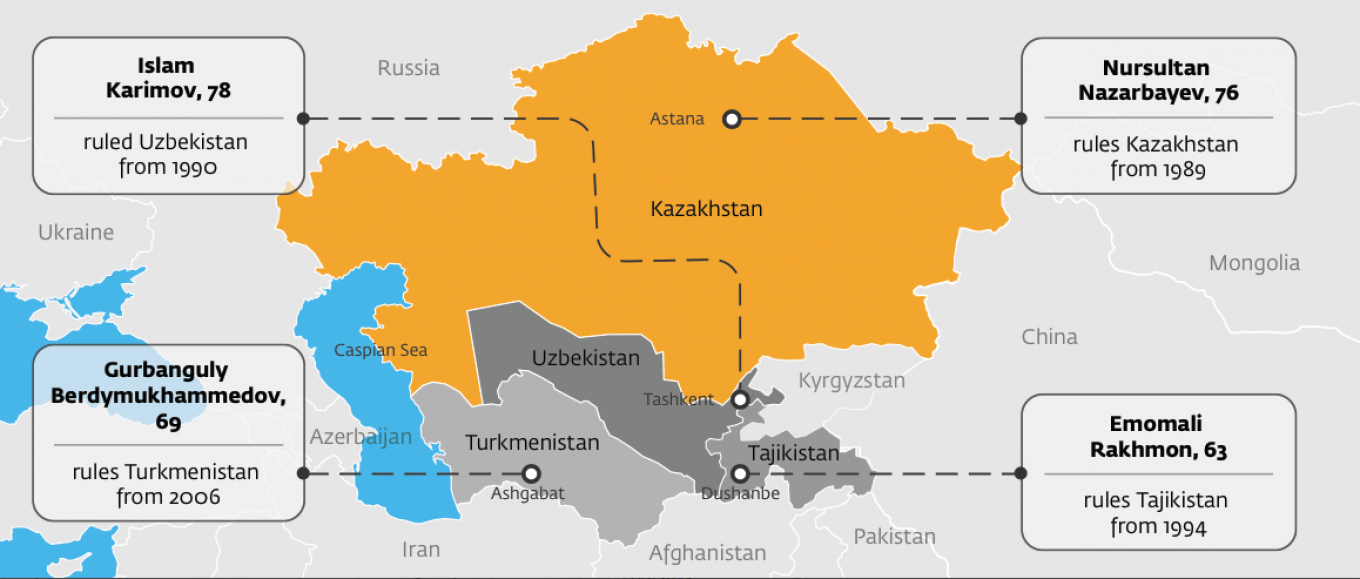
Closer Ties?
A transition in Uzbekistan could offer potential benefits for Russia. The Kremlin would like to see a leader more amenable to closer ties with Russia emerge as Karimov’s replacement.
“Moscow would prefer someone less antagonistic than Karimov,” says Deirdre Tynan, the Central Asia project director for the non-profit International Crisis Group. These sentiments have been echoed in the Russian press.
“It would be nice if this person [Karimov’s successor] was more dynamic and less liable to play political games behind Russia’s back,” columnist Mikhail Rostovsky wrote in the Aug. 31 edition of the Moskovsky Komsomolets newspaper. “But in the Uzbek political bazaar, or more accurately, in the corridors of the Tashkent palace, Moscow’s wishes will not necessarily be taken into account.”
Russia will be looking to shore up its economic position in Central Asia against other regional players. China has made serious commercial inroads in recent years and is particularly keen to cultivate energy and transport ties. In 2014, Russia was the largest exporter to Uzbekistan but last year China claimed the top spot, according to statistics reported by RBC.
Karimov’s death would also increase uncertainty for Russia. How Karimov’s successor manages both security challenges and local nationalism will be a key litmus test for Russia, according to the influential Russian foreign policy commentator Fyodor Lukyanov.
Erica Marat, a professor at the National Defense University in Washington, agrees. “A new leader might be more nationalistic and might try to mobilize ethnic Uzbeks in Kyrgyzstan and Tajikistan,” she says.
Uzbek Intractability
Karimov has stubbornly resisted attempts by Moscow to draw Uzbekistan closer to Russia over more than a quarter of a century in power.
Uzbekistan exited the Collective Security Treaty Organization, a military alliance of former Soviet states, in 2012 and has refused to join the Eurasian Economic Union, a Moscow-led economic bloc that includes Russia, Armenia, Belarus and Kazakhstan.
Uzbekistan does not host Russian military bases, unlike neighboring Kyrgyzstan and Tajikistan, and is the only Central Asiam state — apart from Turkmenistan — that does not have Russian border guards on its territory.
“What Karimov has done — by being fairly closed to Russia while trying to strengthen military cooperation with the West — has worked for Uzbekistan,” says Marat.
Even when relations have soured with the West — such as in 2005, when Uzbek security forces fired on protesters in the city of Andijan, killing over 100 people — Uzbekistan has still managed to chart its independent course. “Karimov’s political choice was autarchy and isolation,” says Lukyanov.
But Karimov has not shunned Russia. He met regularly with Russian President Vladimir Putin in recent months. The Uzbek president flew to Moscow in April for face-to-face talks, and the two men saw each other again in Tashkent for a June meeting of the regional Shanghai Cooperation Organization.
In his meeting with Putin in Moscow, Karimov made a point of stressing Russia’s role in the region. “No one has forgotten geography and everyone knows that Central Asia has been closely linked with Russia for thousands of years,” he said.
“You have to acknowledge reality otherwise it will catch you up and get its hands on you.”
A Message from The Moscow Times:
Dear readers,
We are facing unprecedented challenges. Russia's Prosecutor General's Office has designated The Moscow Times as an "undesirable" organization, criminalizing our work and putting our staff at risk of prosecution. This follows our earlier unjust labeling as a "foreign agent."
These actions are direct attempts to silence independent journalism in Russia. The authorities claim our work "discredits the decisions of the Russian leadership." We see things differently: we strive to provide accurate, unbiased reporting on Russia.
We, the journalists of The Moscow Times, refuse to be silenced. But to continue our work, we need your help.
Your support, no matter how small, makes a world of difference. If you can, please support us monthly starting from just $2. It's quick to set up, and every contribution makes a significant impact.
By supporting The Moscow Times, you're defending open, independent journalism in the face of repression. Thank you for standing with us.
Remind me later.


